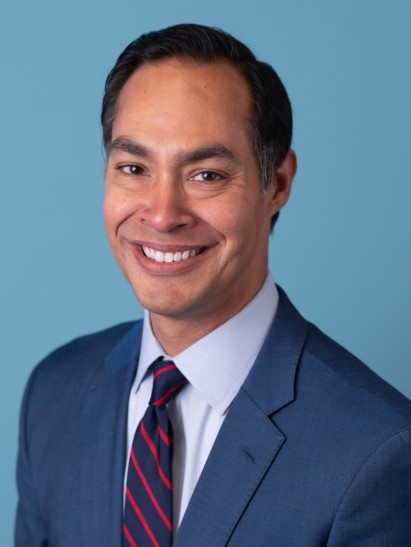 Photo Credit: Michigan Public NPR
Photo Credit: Michigan Public NPR
Latino Voters in Focus: From Misconceptions to Mobilization

Latinos make up 30% of eligible voters in California and almost 15% nationally. It’s no wonder Julián Castro, CEO of the Latino Community Foundation (LCF), says “America’s destiny and the destiny of Latinos are intertwined like never before.” Polling and exit surveys have suggested there was a shift in voting patterns among Latinos in the 2024 election. There is a lot of conversation and debate today about what inspired this change, whether the shift represents a realignment, and what issues matter most to the Latino community. These questions are at the heart of LCF’s work to “unleash the power of Latinos in California.”
Castro, a former U.S. presidential candidate, big-city mayor, and Secretary of the U.S. Department of Housing and Urban Development, recently spoke with the Haas, Jr. Fund about some of the prominent misconceptions about the Latino community, as well as what it will take to ensure that Latinos are full participants in U.S. democracy.
Q: While the Latino community in California and nationally is not a monolith, can you point to commonly shared interests and values?
Julián Castro: Latinos are a very aspirational community, and it is a community whose profile is younger by several years than the non-Latino community. It is a community that tremendously values education and healthcare opportunities, as well as all of the other things that still speak to the idea of the American dream and being able to work hard and accomplish your dreams and provide for your family.
Q: What are some commonly held misconceptions about the Latino community that you’ve seen in philanthropy and the media?
JC: What people often get wrong is they think the community is composed largely of recent immigrants, but most Latinos were born here, and many have been here several generations. Also, many in the media assume Latinos are monolingual Spanish or that Spanish is their preferred language. That is still true for many, but a lot are monolingual English or bilingual. In the minds of many people, the community is one-dimensional in that way, and we need to get past that.
Q: What issues do you see motivating Latino voters?
JC: The Latino community is still a low- to moderate-income community that has been affected by higher prices and inflation. So economic issues are very important. I believe there are ways to mobilize the large numbers of Latinos who care deeply about their economic well-being and quality of life and who want to move up in the world—and we can do this without bringing others down.
Some people, for example, have tried to cleave the large number of Latinos who have been in the U.S. for generations from newer immigrants. But I don’t see empirical evidence that immigration issues are a primary factor in the Latino vote.
I think it’s possible to appeal to Latinos’ core values in ways that build community vs. tearing folks apart. For example, one issue that resonates most with the Latino community is the plight of Dreamers and supporting their ability to build a life in the U.S. We can also talk about college opportunity and better health care and better jobs and the ability to move up the ladder and achieve economic freedom.
Q: What are you working on at the Latino Community Foundation to advance a better understanding of the Latino community in California and beyond?
JC: At LCF, we are doing several things to try and get better answers on where the Latino community is right now. In late May, we are convening grantees from Arizona, Nevada, California, Texas, and New Mexico. These are groups that were working on nonpartisan efforts to inform and mobilize Latino voters in 2024. And we will be asking them about lessons learned. What did you see and hear? How are Latino residents getting their information? How can they be better informed and better reached? We also are doing some polling with Voto Latino on Latino attitudes in the current moment. That will give us a real-time sense of where the community is right now.
Q: What is your advice to other funders about this moment to engage and support the Latino community?
JC: I am proud of a lot of the work philanthropy is doing on issues affecting the Latino community. One priority right now is working together to make sure Latino-serving and immigrant-serving nonprofit organizations have the resources they need to respond to administrative and legal actions that threaten their work and their communities. Beyond that, we need to get past our misperceptions and engage with Latino communities in ways that honor their aspirations for themselves and their families and their belief in our democracy and the American dream.